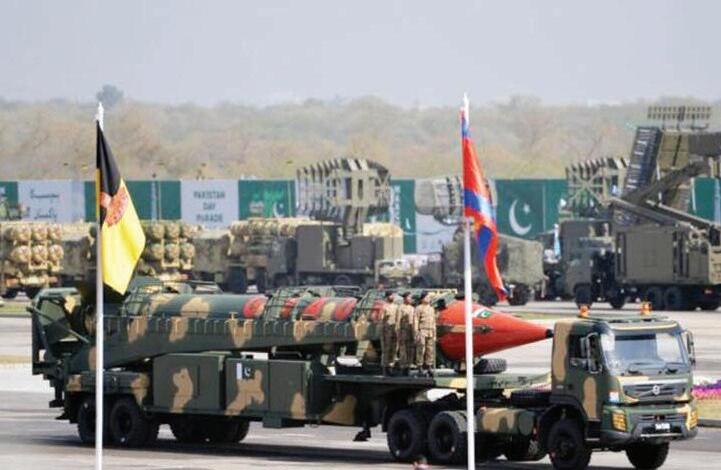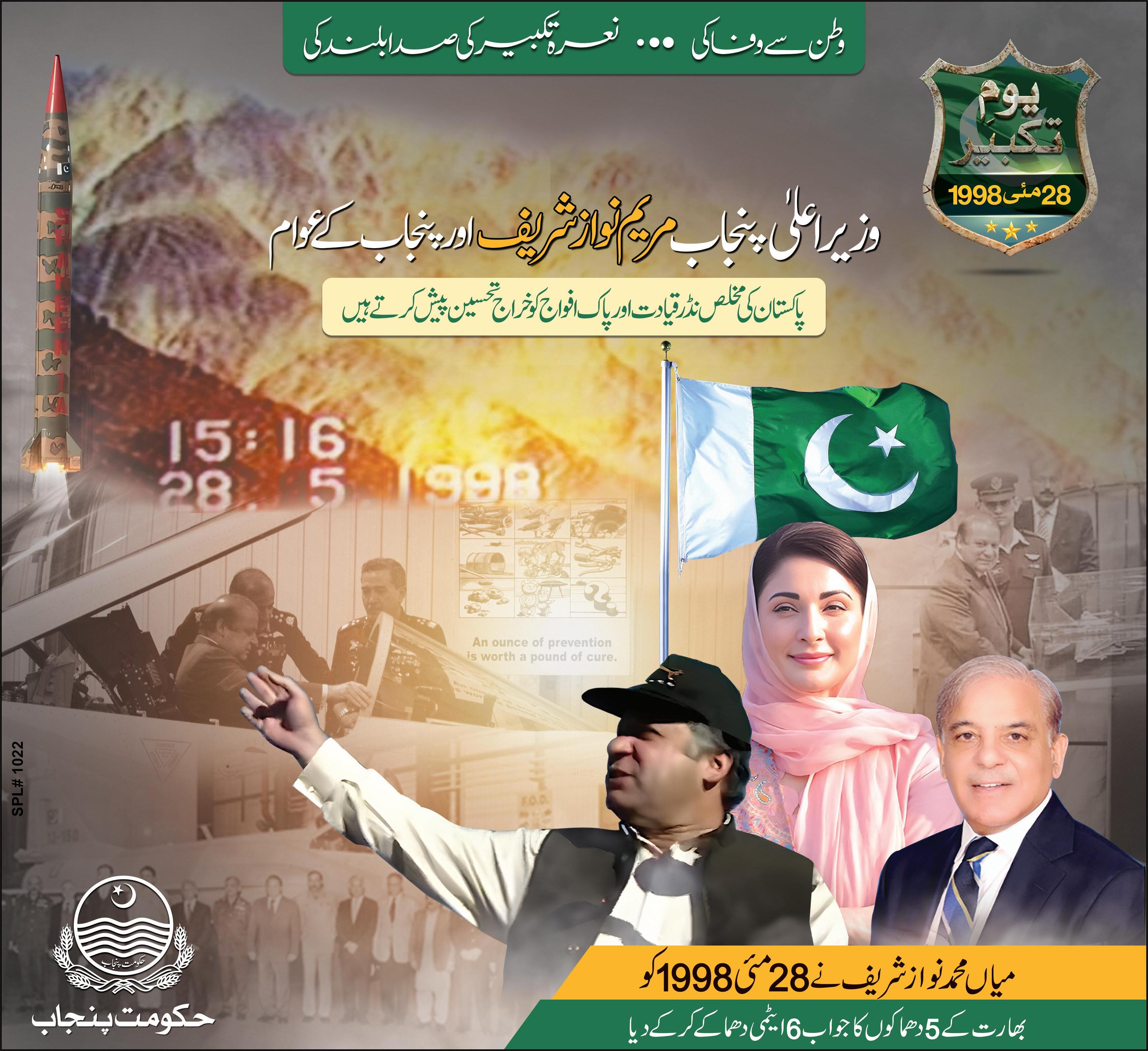

PAKISTAN, A ZERBAIJAN REITERATE SHARED PLEDGE TO DIVERSIF Y STRATEGIC PARTNERSHIP
PLACHIN/ISLAMABAD
S A L E E M J A D O O N
RIME Minister Shehbaz Sharif and Azerbaijan President Ilham Aliyev reiterated the shared pledge to diversify the strategic partnership through investment in mutually beneficial avenues underscoring the importance of coordinated efforts to promote regional stability, and principled positions on key international issues state-run Radio Pakistan reported Premier Shehbaz Sharif met with President Aliyev after landing in Azerbaijan s city of Lachin earlier Tuesday as part of his four-nation tour to appreciate their support for Pakistan during the recent military confrontation with India
PM Shehbaz Sharif had started his expedition on May 25 with a visit to Turkiye and then he went to Tehran on Monday where he held detailed meetings with the Iranian leadership, according to Associated Press of Pakistan citing Prime Minister Office
Tajikistan is the final stop of the prime minister ’s trip ending on May 30 the APP said
During their meeting on Tuesday
PM Shehbaz and Aliyev reviewed the full spectrum of bilateral relations and expressed satisfaction over the upward trajectory of political economic defence and cultural cooperation” between their countries State broadcaster PTV News reported
The prime minister expressed gratitude to President Aliyev for the steadfast support during the recent Pakistan-India
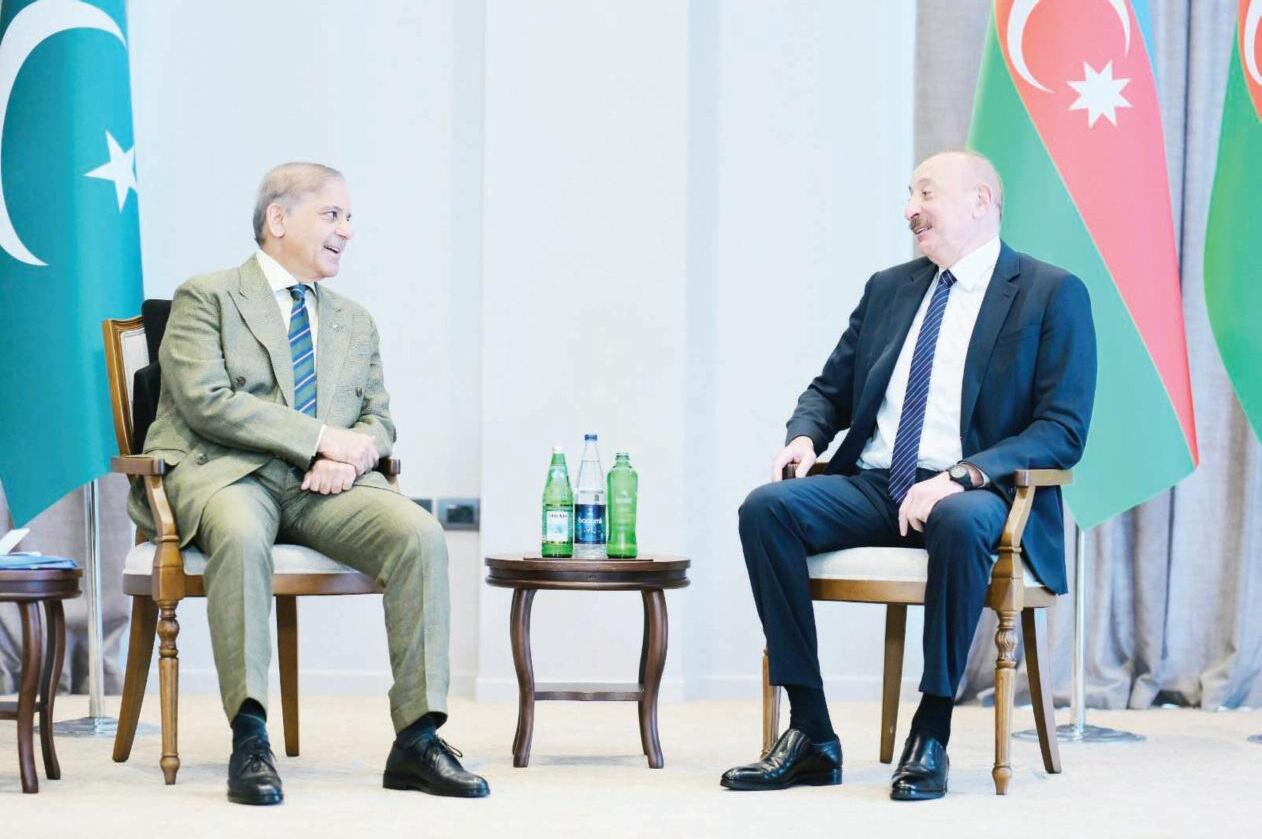
confrontation and acknowledged the public expressions of solidarity from both the leadership and the people of brotherly Azerbaijan”
Earlier this month Aliyev had congratulated Shehbaz upon Pakistan s remarkable success according to the PM Office He noted that the people of Azerbaijan celebrated the success of Pakistan in Marka-i-Haq against India”, referring to the Pakistan armed forces’ response to Indian aggression A video shared by the government showed President Aliyev greeting the premier with a hug and the two sharing an energetic handshake
The Azerbaijan side agreed to the exchange of delegations regarding progress in its investment in Pakistan with dele-
gation-level talks to be organised very soon , Radio Pakistan reported
The prime minister reiterated that both countries had stood by each other on every occasion and would continue to do so He also conveyed his warm felicitations to Aliyev and his nation ahead of the Azerbaijan Republic Day tomorrow The two leaders underscored the importance of coordinated efforts to promote regional stability, mutual prosperity and principled positions on key international issues the report added
The meeting concluded with both leaders reaffirming their commitment to the deepening of the Pakistan-Azerbaijan partnership and working closely to further advance shared objectives at the bilateral and regional levels
Chief of Army Staff (COAS) Field Marshal Syed Asim Munir, Deputy PM Ishaq Dar, Information Minister Attaullah Tarar, and Special Assistant to PM Tariq Fatemi were also present during the meeting according to a post on the government s official X account
The leaders also met over a luncheon, according to state media Unity and brotherhood in the end, that’s all what matters!” posted Dar on his X account He also shared a video showing glimpses of Aliyev and the Pakistani top leadership having a cordial conversation PM arrives in Azerbaijan to attend Trilateral Summit Prime Minister Muhammad Shehbaz Sharif on Tuesday arrived in the city of Lachin Azerbaijan where at Lachin airport he was received by Azerbaijan Foreign Minister Jeyhun Bayramov
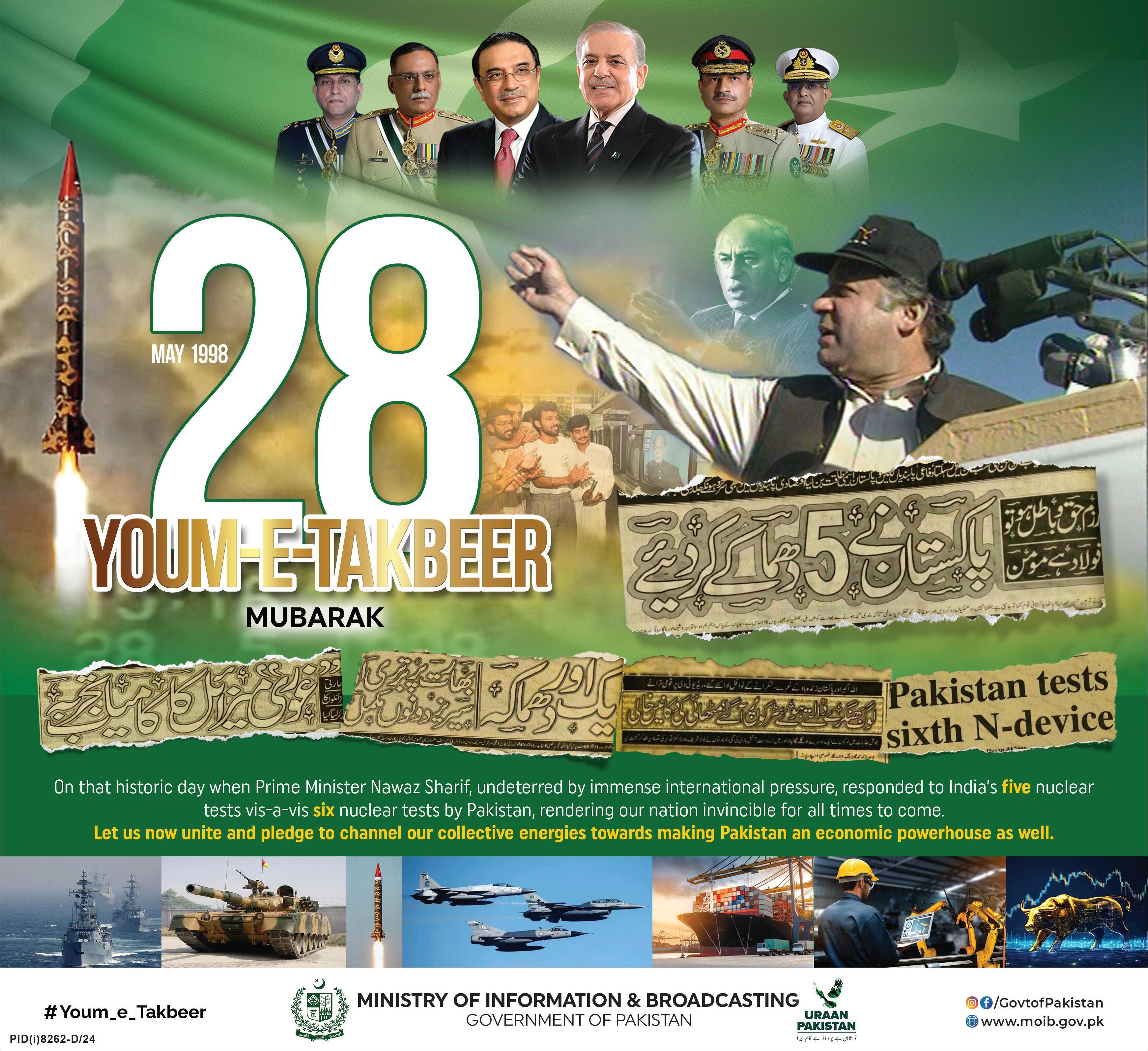

PMO DIRECTS POWER DIVISION TO EXPEDITE DISCOS
The disagreements between the Pakistan government and the International Monetary Fund (IMF) over key budgetary figures and subsidy allocations have delayed the budget for the next fiscal year 202526, pushing its presentation from June 2 to June 10, Business Recorder reported During a session of the National Assembly Standing Committee on Commerce chaired by Khurshid Ahmed Junejo Joint Secretary (Corporate Finance) Sajjad Azhar highlighted the challenges the government faces in reconciling its budgetary figures
Azhar explained that the delay is due to difficulties in finalising subsidy figures under Pakistan s current Extended Fund Facility (EFF) agreement with the IMF
He noted that the IMF has imposed a cap on subsidies and rejected any changes to the recently presented budget figures The meeting also discussed outstanding receivables owed to the Trading Corporation of Pakistan (TCP) amounting to Rs 317 5 billion including Rs 93 693 billion in principal and Rs 223 797 billion in accrued markup Tensions arose during the session between Azhar and TCP Chairman Syed Rafeo Bashir Shah over the calculation of the markup and loans from commercial banks Shah argued that the TCP had distributed imported wheat and urea as per directives from the Economic Coordination Committee (ECC) but payments had been pending since 2010 Azhar countered, stating that the ECC had never approved covering the markup costs through the federal government and explained that the Finance Ministry had held
multiple meetings to reconcile these dues
The State Bank of Pakistan (SBP) was also approached to help reduce the markup rates, but it clarified that no relief could be extended since the agreements with the commercial banks were based on standard terms
The committee members urged the Finance Ministry to allocate additional subsidies to allow for partial payments to the TCP Azhar also mentioned that the Finance Ministry had recently secured commercial loans for Pakistan International Airlines (PIA) without any discounts and was exploring similar arrangements to manage circular debt The borrowing terms are based on the Karachi Interbank Offered Rate (KIBOR) minus 0 2 percent and a summary on this matter will be presented to the federal cabinet He further noted that the Punjab government had committed to paying Rs 26
billion with the federal government matching this amount in the next fiscal year Additionally, Rs 15 billion will be disbursed to TCP on behalf of the Utility Stores Corporation (USC) and National Fertilizer Marketing Limited (NFML) pending authorizations from the relevant ministries Another Rs 30 billion will be allocated in the upcoming budget Following a detailed discussion, the panel agreed to release the undisputed amount of Rs 90 billion to TCP in the first phase A mechanism will be developed to address the issue of markup payments in the second phase and TCP will conduct a special audit of its commercial loans to identify any discrepancies Panel members Shaista Pervaiz Malik and Rana Atif expressed concerns regarding the markup and called for a swift resolution of the outstanding payments
Pakistan’s per expatriate remittance remains low compared to regional countries despite projected $38b inflows in FY25
g PAKISTAN'S PER EXPATRIATE REMITTANCE OF $2,529 IN 2023 LAGS BEHIND COUNTRIES LIKE PHILIPPINES ($16,780), THAILAND ($9,703), MEXICO ($5,914), CHINA ($4,626) AND INDIA ($3,906)
N e w s D e s k
Despite the projection of $38 billion in remittance inflows for the current fiscal year (FY25), Pakistan s per expatriate remittance continues to lag behind that of its regional counterparts According to a report released by the Policy Research and Advisory Council (PRAC) while remittances have grown at an annual rate of 6 1% from 2013 to 2023, the amount received per expatriate remains significantly lower The report highlighted that Pakistan’s per expatriate remittance stood at $2 529 in 2023 far behind countries like the Philippines ($16 780) Thailand ($9 703) Mexico ($5 914) China ($4,626), and India ($3,906) While the inflow of remittances is projected to reach $38 billion in FY25, the report attributes this volatility to several structural challenges such as a narrow export base heavily reliant on
textiles, a persistent trade deficit, increasing imports of consumer goods, a depreciating rupee and modest remittance inflows
The report also reviewed recent policy measures such as the Roshan Digital Account (RDA) and Naya Pakistan Certificates (NPCs), which have contributed to mobilizing remittances and foreign investments However, the report notes that the benefits of these initiatives have been primarily concentrated in sectors like real estate with limited impact on industrial or agricultural productivity
To address these challenges, PRAC has recommended several reforms, including adjusting yields on investment certificates reducing remittance transfer costs and directing RDA inflows toward special economic zones (SEZs) and agro-processing The report also suggests simplifying regulations on corporate foreign currency accounts and shifting towards
a managed-float or peg-and-revalue exchange rate regime, anchored to the Real Effective Exchange Rate (REER) to improve currency competitiveness and reduce volatility
The report also examined Pakistan s foreign exchange reserves, noting that they have fluctuated considerably, influenced by global factors such as oil price volatility and internal factors like political instability
For instance the country s forex reserves dropped sharply from $23 5 billion in 2016 to just $11 3 billion in 2023, barely covering three weeks worth of imports
The proposed measures aim to strengthen Pakistan’s foreign exchange management and create a more resilient economy fostering sustainable exportled growth The report emphasizes that a dynamic approach to reserves management is crucial to mitigate the impact of oil price spikes, political instability and other external shocks
in phases with a target launch by June 30 2025 The app aims to address vulnerabilities and improve communication security within government departments The committee also discussed the continued internet suspension in Panjgur, where services are set to remain down for six months due to security concerns The committee voiced concerns about the disruption to businesses and education in
World Bank urges broader structural

Finance Minister clarifies no special salar y increase for armed forces over civilian employees
The Ministry of Energy (Power Division) endorsed HAZECO s application, submitted on October 21, 2024, which went through stakeholder consultations and a review process
NEPRA noted that HAZECO incorporated on October 31 2023 has inherited the necessary infrastructure and resources from PESCO With over 210 high-tension feeders, HAZECO is set to serve approximately 800,000 consumers across various categories In FY 2023–24 the region saw a peak demand of 712 MW and recorded 2 346 GWh in energy sales
The power regulator also directed HAZECO to file a tariff petition under
The National Electric Power Regulatory Authority (NEPRA) has formally granted a 20-year electric power supply licence to Hazara Electric Supply Company Limited (HAZECO), authorising it to operate as a Supplier of Last Resort (SoLR) in eight districts of Khyber Pakhtunkhwa (KP) The licence effective immediately will remain valid until May 2045 Issued under Sections 23E and 23F of the NEPRA Act, it authorizes HAZECO to supply electricity in Abbottabad Haripur Mansehra Battagram Torghar Upper and Lower Kohistan and Kolai Pallas areas formerly served by Peshawar Electric Supply Company (PESCO) This move follows the federal government s directive to divide PESCO’s jurisdiction and create HAZECO as a separate public limited company to improve power service efficiency in the region
NEPRA Tariff Rules, while adhering to strict performance and consumer service standards
The company is required to function with full transparency adopt smart metering practices and ensure efficient billing complaint resolution and meter accuracy
Importantly, HAZECO will be obligated to participate in the Competitive Trading Bilateral Contract Market (CTBCM) and maintain a dedicated regulatory and planning unit (MIRAD) to support market integration
NEPRA emphasized that any financial burden, service delays, or regulatory non-compliance would lead to enforcement action including possible revocation of the licence HAZECO is also required to ensure functional separation of its distribution and supply operations within two years

PR I M e M I n I S T e R Shehbaz Sharif seems to be using his thank-you tour, in which he is scheduled to visit four countries to express special thanks for the support they extended during the recent Pak-India standoff, for more tangible benefits At least that is the impression he gave on the first leg of his trip a visit to Iran where he proffered the nation’s gratitude for the support that Iran extended in the crisis He also took up Iran on its offer of mediation during the crisis, and said that Pakistan would welcome its playing a part in developing peace within the region He also expressed his support for Iran developing a peaceful nuclear programme Thus he expressed support for Iran against the USA, which has been accusing Iran of developing a nuclear weapon Iran says that it is enriching uranium not to develop a nuclear weapon, but to use nuclear energy for power generation, reserving its petroleum for export In an interview to the Iranian official new agency IRnA just ahead of his visit, he set a target of $10 billion in mutual trade, which would be more than a tripling of the present $3 billion It remains to be seen if Mr Sharif says anything about trade in any of the three countries he will visit, which include Azerbaijan, Turkmenistan and Turkiye
Iran has been going out of the Indian camp of late with the planned development of Chabahar Port as a rival to Gwadar now in all sorts of trouble One reason has been that India is drawing closer to the USA just as Iran is moving away from it There is also a convergence in recent times between Iran and Russia as well as between Turkiye and Russia As Russo-Chinese ties grow warmer, Pakistan finds itself more at ease because of Turkiye and Iran
As BJP loudmouths have been sounding off about Turkiye it is only fitting that Pakistan thank it It should not be forgotten that Indo- Turkish relations have been good, and the Indian closeness to the USA is an incentive for Turkiye to grow closer It is because of this that BJP blowhards have been particularly upset, to the extent of demanding a travel ban, so that Indians stop supporting the Turkish tourism industry, which is presently the leading Indian tourism destination

Dedicated to the legac y of late Hameed Nizami Arif Nizami (Late) Founding Editor
M A Niazi Editor Pakistan Today Babar Nizami Editor Profit
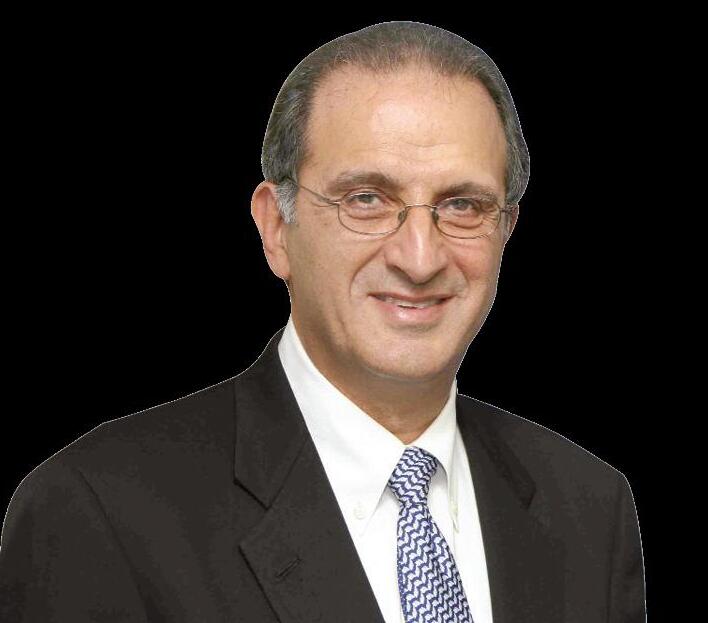

Dr JAmeS J ZOGby
On e thing of which we can be certain is that there will be consequences to the genocide in Gaza It is difficult to wrap one s arms around the excruciating pain being endured by Palestinians in Gaza We only know the rough outline of the devastation Tens of thousands have been murdered in aerial bombardments, over 100 00 have sustained serious injuries the majority of homes have been demolished and as a result of Israel s blockade mass starvation is impacting more than 1 5 million people In addition hospitals and schools have been destroyed, and other essential services to provide support for births, illnesses, deaths and grieving, and treatment of the psychological wounds of war have been largely terminated We know that most of the dead and wounded are civilians with the majority being women and children We also know that upwards of 4000 people have lost limbs And many wounded children are the only survivors in their families, making them maimed orphans without a support network I’ve written before about the indecency of those “day-after” discussions that focus exclusively on matters of governance or bricks-and-mortar while ignoring the human dimension and long-term consequences of this conflict Of course those governing and reconstruction issues are important, and it is gratifying that working papers are being developed to address them But building housing and infrastructure and creating administrative structures should not be the sole considerations; attention must also be paid to addressing and healing the physical and psychological wounds of this war
Consider the psychic wounds experienced by Gaza s children We know that significant losses produce trauma Losing a parent, a sibling, or a friend, or even just moving to a new neighbourhood can be unsettling and have an impact on behaviour or mental stability We also know that the degree of the shock can be mitigated by other factors For example: the discomfort experienced by a child when their family moves to a new city and the child loses friends and a familiar environment can be somewhat offset by a supportive family But what if as is the case in Gaza your family has lost many loved ones (parents children and close extended family members) been forced to move multiple times and is now living in a tent without food or water? And then imagine that during the last ceasefire, children, already traumatized by loss, joined the hundreds of thousands of Palestinians making the long trek northward to their old homes What they find upon arrival is that not only their home but also their
entire neighborhood is rubble and unrecognizable And then they are forced to deal with hunger and the indignity of witnessing their parents begging for food We know that as we grow our brains organize our experiences so that they sense to us We develop a mental map of our relationships and our place in the world in which we live But what if, in the case of a 12-year-old returning to Gaza City,
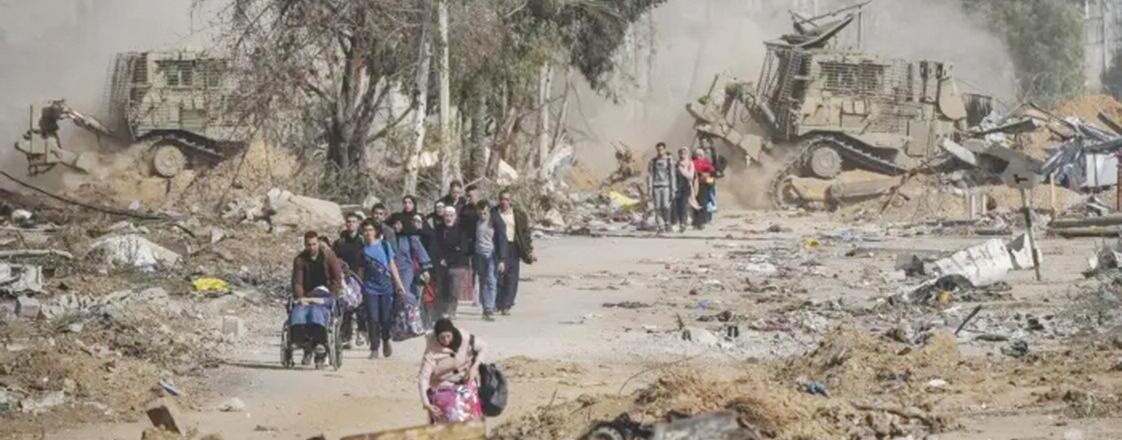
From crusades to real estate

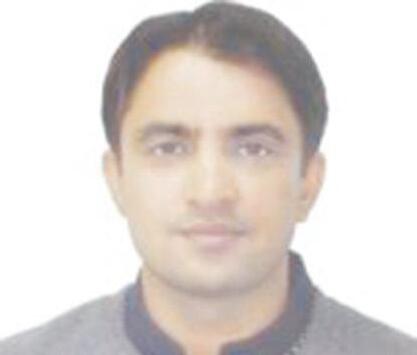
Aallure of
also comes with its own complications Unlike the
it is not fully
and remains under strict control by
authorities This lack of liquidity and
creates challenges for countries considering deeper yuan integration Moreover Chinese financial support often comes with opaque terms limited policy flexibility, and a concentration of investment in sectors that may not yield inclusive development Countries such as Pakistan and Sri Lanka, already deeply indebted to China through the Belt and Road Initiative could face even greater constraints if they increase reliance on the yuan without proper safeguards In today s environment, the choice is not merely between the dollar and the yuan The real question is whether South Asian countries can move beyond currency dependence altogether Rather than aligning themselves with one geopolitical pole or another they must invest in long-term economic resilience This in-
cludes fostering a diversified manufacturing base, promoting export-led growth, leveraging digital infrastructure for financial inclusion, and strengthening institutional capacity to navigate global financial turbulence Additionally embracing flexible multi-currency trade and settlement mechanisms can offer greater strategic autonomy By developing local capital markets and engaging in bilateral or regional currency swap agreements on favorable terms, these countries can enhance their financial sovereignty without binding themselves too tightly to any single external power For nations like Pakistan de-dollarization is not a silver bullet Without confronting fundamental economic challenges such as high debt burdens, low reserves, and narrow industrial bases, the shift from the dollar may only deepen reliance on another dominant actor True financial independence is not achieved through symbolism or reactive alignment It stems from cultivating an economy that is competitive and capable of withstanding volatility in the global economic landscape As the momentum behind bypassing the US dollar accelerates, South Asian countries must ask a more forward-looking question: Can they use this global inflection point to build economies that are less vulnerable more inclusive and truly sovereign? That far more than choosing between the yuan and the dollar, remains their most urgent and unfinished business
The writer is associated with the School of Economics and Management Dalian University of Technology Dalian China He can be reached at usman ali@dlut edu cn and usman861@gmail com
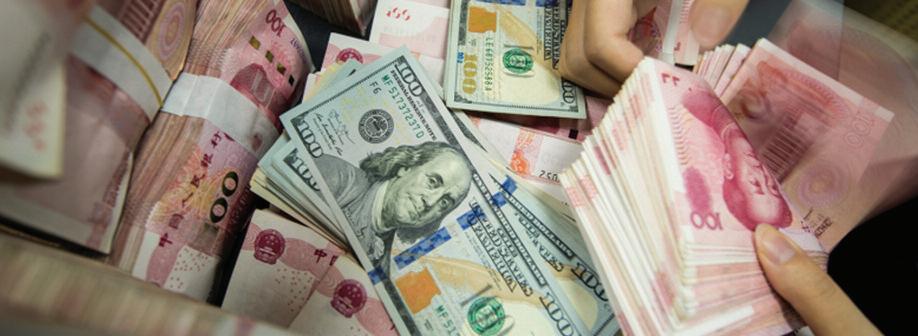
USmAN AlI

How the Gulf’s economic leverage may liberate Palestine
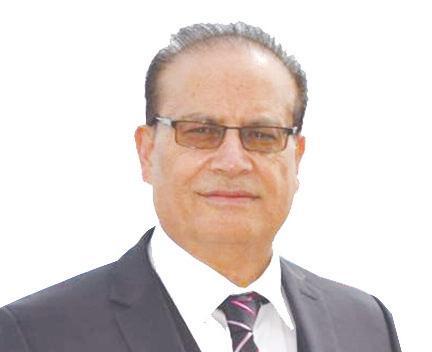
DU R I N G President Donald Trump’s recent visit to the Middle East one major theme emerged with clarity and significance: the transformative use of money investment, and trade as strategic instruments of diplomacy The Gulf states, particularly Saudi Arabia, the UAE, and Qatar, have recognized that in the current global order where hard power has its limits economic might can achieve what missiles and tanks cannot They applied this new doctrine with precision targeting none other than the most powerful man on earth President Donald Trump himself Trump, a successful businessman known globally for his admiration of wealth and commerce has consistently prioritized economic gain over military entanglements Recognizing this the Gulf states unveiled a diplomatic strategy rooted not in coercion but in commerce offering billions in trade deals, unprecedented investment pledges, and economic opportunities tailored to revitalize the US economy under Trump’s leadership At the heart of this strategic courtship lies a humanitarian and moral objective: the liberation of Palestine and the cessation of Israel s brutal war on Gaza But unlike past attempts, this was not a call to arms The Gulf states chose not to challenge Israel through kinetic military engagement They knew that a military confrontation with the U S -backed Israeli war machine would bring catastrophic consequences not just for their own nations but for the broader Islamic world and global stability Instead, the Gulf s leaders Crown Prince Mohammed bin Salman of Saudi Arabia Sheikh Mohammed bin Zayed of the UAE and Sheikh Tamim bin Hamad Al Thani of Qatar adopted a wiser calculated approach By opening the gates of their economies to US companies, pledging over $13 trillion in long-term investments, and offering deep trade concessions, they provided Trump with the very lifeline he needs to fulfill his campaign promises: jobs prosperity and economic resurgence
Speaking alongside these leaders Trump praised the Gulf ’s transformation and economic evolution He marveled at the skyscrapers the architectural brilliance and the futuristic cities rising from the desert Riyadh is becoming not just a seat of government but a major business, cultural, and high-tech capital of the entire world,” he stated Trump emphasized that what he witnessed was unlike anything seen before acknowledging that the transformation has not come from Western interventionists but from the people of the region themselves In his address, Trump also noted that the Gulf nations have done what even the most sophisticated Western efforts failed to do in Kabul or Baghdad: build cities of prosperity peace and purpose through self-driven visions national pride and smart investments In parallel, the Amir of Qatar echoed a message of interconnected peace Americans and Qataris want peace,” he said “I believe we have a God-given duty to bring about peace I truly believe that you [Trump] are a president of peace He emphasized the urgency of diplomacy revealing that U S and Qatari teams were working intensely to achieve a ceasefire in Gaza, protect civilians, and secure the release of hostages The Amir added that resolving this conflict is essential to broader regional stability from the West Bank to Yemen and Lebanon
In exchange the Gulf states put forward a united unambiguous demand: an end to Israeli aggression in Gaza and a durable, just solution to the Palestinian issue in line with numerous United Nations Security Council resolutions The message was unmistakable: continued economic engagement is contingent on peace and justice in Palestine
This strategy represents a dramatic shift in the geopolitical toolkit of the Muslim world
In earlier decades, Muslim nations responded to Israeli aggression with protests, condemnations, and sometimes military retaliation But
such measures proved ineffective against the combined might of the USA and Israel Worse these moves exposed their societies to economic destruction political instability and social upheaval This time, however, the Arab world has chosen intellect over instinct
They have not compromised their solidarity with Palestine They have not abandoned their moral compass Rather they have recalibrated their instruments of power They know that economic interdependence can shape political behavior more effectively than empty threats or symbolic resolutions And they know that Trump, in his second term, is focused more than ever on economic revival and less interested in military adventures that drain national wealth
In the same breath they have offered Trump something Israel cannot: massive foreign direct investment, expanded trade opportunities, and access to the most rapidly transforming economies in the Middle East Unlike Israel, whose leverage in Washington lies in political lobbies media influence and campaign financing the Gulf states bring real money tangible immediate and essential for Trump s domestic success
One of the most telling decisions during this Gulf tour was President Trump s deliberate omission of Israel from his itinerary Unlike past US administrations that prioritized visits to Tel Aviv or Jerusalem Trump focused solely on Saudi Arabia the UAE and Qatar Analysts believe this move signalled a subtle but significant sidelining of Israel While not a break in relations, it underscored Trump’s recalibration of US foreign policy toward economic pragmatism and away from ideological commitments The Trump Administration appears increasingly aware that its core interests regional stability economic growth and diplomatic influence can no longer be chained to Israel s hardline policies Moreover, recent diplomatic breakthroughs such as the ceasefire with the Houthis the initiation of US-Iran nuclear talks in Muscat and even discussions on lifting sanctions on Syria were achieved with-
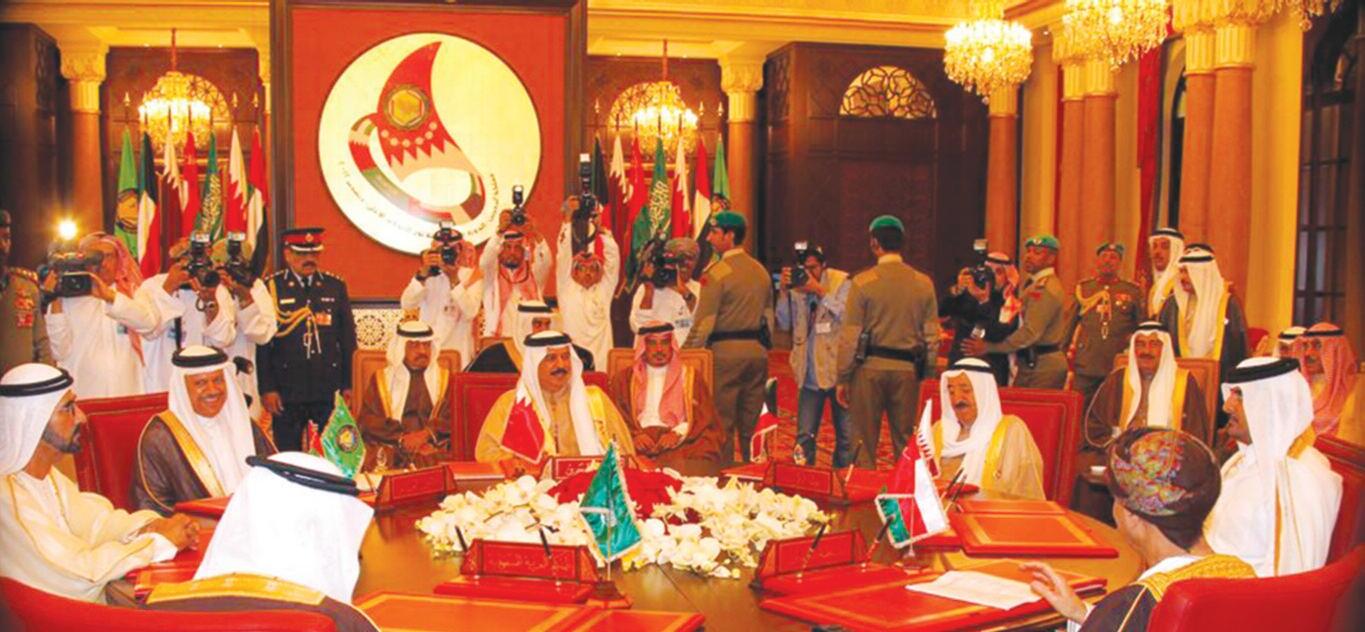
out Israeli involvement The release of an Israeli-American hostage by Hamas also occurred without Israeli mediation indicating a shift in the USA s diplomatic channels Trump s administration, thus, seems to recognize that Israel is no longer the sole or even central conduit to Middle Eastern peace Instead the Gulf monarchies have emerged as credible effective interlocutors
The brilliance of this strategy lies in its dual-edged nature If Trump aligns with the Gulf and distances the USA from Israel s unrelenting war on Gaza, the economic windfall will flow freely into the USA If he refuses, the Gulf states now hold the power to stall or withdraw these investments undermining Trump s economic narrative and denting public optimism investor confidence and stock market momentum For a president who thrives on optics, numbers, and headlines, this risk is substantial
Moreover, the Gulf ’s economic leverage has created a rare window of opportunity for the Palestinians If Arab investments become more appealing to the USA than the traditional Israeli lobby Washington s strategic calculus could tilt
The most dangerous weapon in South Asia is not nuclear

language In India’s case, the media crafted a story where military might was tethered to moral clarity The strikes weren’t aggression they were catharsis They weren t war they were therapy But here s the thing: therapy for whom?

launched Operation Sindoor and Pakistan replied with Operation Bunyan-um-Marsoos the world braced for escalation Analysts held their breath Twitter exploded The Line of Control – that jagged scar between two unfinished imaginations of nationhood – lit up again But if you think what happened
SCENE TWO: THE SACRED DEFENCE: Three days later, Pakistan struck back Operation Bunyan Marsoos Arabic for “iron wall” was declared The name alone tells you everything This wasn’t just a retaliatory strike; it was a theological assertion a national sermon The enemy had dared to trespass The response would be divine Pakistani missiles reportedly rained down on Indian military sites: brigade headquarters, an S-400 system, and military installations in Punjab and Jammu Prime Minister Shehbaz Sharif proclaimed that Pakistan had avenged the 1971 war in which it had capitulated and allowed Bangladesh to secede That s not battlefield strategy That s myth-making The media in Pakistan amplified this narrative with patriotic zeal Indian strikes were framed as war crimes mosques hit civilians killed Photographs of rubble and blood were paired with captions about martyrdom The response by contrast was precise moral and inevitable Pakistan s national identity, as constructed in this moment, was one of righteous victimhood: we are peaceful, but provoked; restrained, but resolute We do not seek war, but we do not fear it either The symmetry is uncanny Both states saw themselves as defenders never aggressors Both claimed moral superiority Both insisted the enemy fired first Both said they had no choice
CONSTRUCTING THE ENEMY AND THE VICTIM: The symmetry was also apparent in the constructed image of the enemy and the declared victims India portrayed Pakistan as a terror factory: duplicitous rogue a nucleararmed spoiler addicted to jihad Pakistani identity was reduced to its worst stereotype, deceptive and dangerous Peace, in this worldview, is impossible because the Other is irrational Pakistan in turn cast India as a fascist state: led by a majoritarian regime obsessed with humiliation eager to erase Muslims from history Prime Minister Narendra Modi was the aggressor India was the occupier Their strikes were framed not as counterterrorism but as religious war In each case, the enemy wasn’t just a threat
we wounded their chest Cinematic? Absolutely Deliberate? Even more so Indian media constructed a national identity of moral power: a state forced into action, responding not with rage but with restraint, armed not just with BrahMos missiles but with dharma – righteous duty and moral order The
t Pakistan the narrative insisted
The enemy was an idea and an idea cannot be reasoned with This is the danger of media-driven identity construction Once the Other becomes a caricature dialogue dies Diplomacy becomes weakness Compromise becomes betrayal And war becomes not just possible, but desirable The image of the Other also determined who was considered a victim and who was
rubble of rhetoric In both countries, the media didn t mourn equally Victims were grieved if they were
ours Theirs? Collateral Or fabricated Or forgotten This selective mourning is a moral indictment Because when we only care about our dead we become numb to justice And in that numbness violence becomes easier the next time THE BATTLE FOR LEGITIMACY: What was at stake during the India-Pakistan confrontation wasn’t just territory or tactical advantage It was legitimacy Both states needed to convince their own citizens and the world that they were on the right side of history Indian media leaned on the global war on terror frame By targeting Pakistan-based militants, India positioned itself as a partner in global security Sound familiar? It should It’s the same playbook used by the United States in Iraq and Israel in Gaza Language like “surgical precision and pre-emptive doesn t just describe it absolves Meanwhile Pakistan s media leaned on the moral weight of sovereignty India s strikes were framed as an assault not just on land, but on izzat, honour By invoking sacred spaces, by publicising civilian casualties Pakistan constructed India not as a counterterrorist actor but as a bully and a blasphemer This discursive tug-of-war extended even to facts When India claimed to have killed 80 militants, Pakistan called it fiction When Pakistan claimed to have shot down Indian jets, India called it propaganda Each accused the other of misinformation Each media ecosystem became a hall of mirrors reflecting only what it wanted to see CEASEFIRE, SILENCE AND A CALL TO LISTEN DIFFERENTLY: The guns fell silent on May 13, thanks to a US-brokered ceasefire Both governments claimed victory Media outlets moved on Cricket resumed Hashtags faded But what lingers is the story each side now tells about itself: We were right They were wrong We showed strength They backed down This is the story that will shape textbooks, elections, military budgets It will inform the next standoff, the next skirmish, the next war And until the story changes, nothing will And it can change Narratives constructed on competing truths forged in newsrooms and battlefields performed in rallies and funerals are not eternal Just as they were constructed, they can be deconstructed And that can happen only if we start listening not to the loudest voice, but to the one we’ve learned to ignore So the next
Qamar Bashir

INDIA APPROVES STEALTH FIGHTER PROGRAMME AMID TENSIONS WITH PAKISTAN
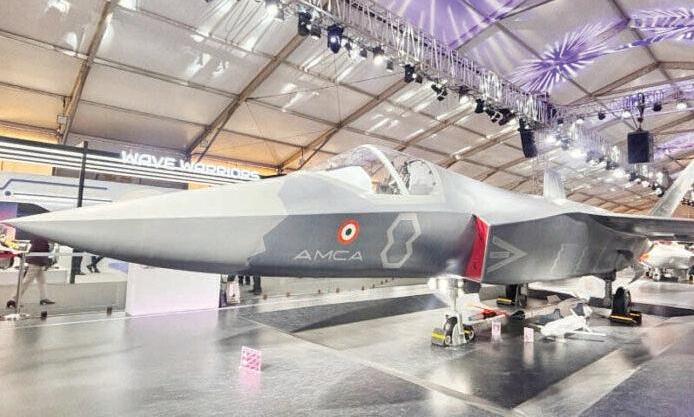
PTCL Group Par tners with NETS International to Modernize IT Core Routing Solution with Cisco Technology

We re glad to announce that Pakistan Telecommunication Company Limited (PTCL) Group, consisting of PTCL and Ufone 4G, has joined forces with NETS International to modernize our IT Core Routing Platforms by deploying a stateof-the-art Cisco IT Core Routing Solution This strategic initiative underscores our unwavering commitment to delivering superior IT services by leveraging the latest advancements in network infrastructure The deployment of Cisco s industryleading routing technology will bring transformative benefits with significant impact on our operations
tional market environment Li made the remarks when addressing the ASEAN (the Association of Southeast Asian Nations)-China-GCC (the Gulf Cooperation Council) Economic Forum 2025 Li stated that China will continue to expand high-level opening up He added that both the Chinese government and its people have the capability and confidence to keep the big ship of the Chinese economy sailing steadily and far, despite facing various challenges ahead He called on China, ASEAN and the GCC countries to remain committed to greater openness and work together to remove barriers in the face of rising protectionism and unilateralism in some parts of the world
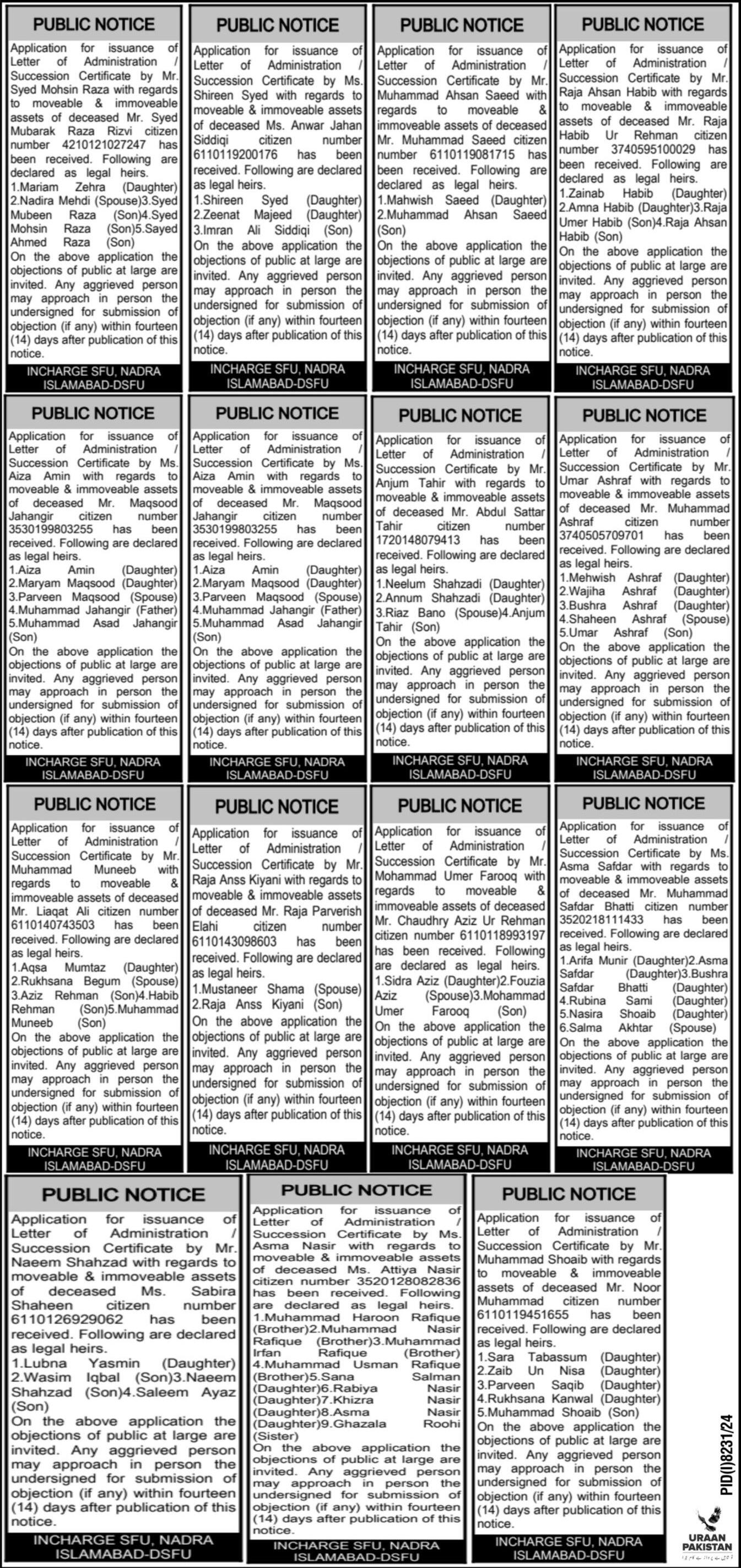
China to further consolidate role of economic, technological development zones China will further consolidate the role of state-level economic and technological development zones in attracting foreign investment amid its continuous openingup efforts, the Ministry of Commerce said on Tuesday
The international economic and trade order is currently facing severe shocks Ling Ji vice minister of commerce told a press conference noting that the role of development zones as a mainstay in stabilizing foreign trade and investment is becoming increasingly prominent
By the end of 2024 the number of such zones reached 232 across the country generating a combined GDP of 16 9 trillion yuan (about $2 35 trillion), according to the ministry During the same period, foreign trade within these zones totaled 10 7 trillion yuan accounting for 24 5 percent of China s overall trade Foreign direct
lion, representing 23 4 percent of the country s total FDI
The zones have made significant contributions to building a new open economic system promoting coordinated regional development and driving high-quality industrial growth
Ling said Last week, the ministry released a work plan aimed at deepening reform and innovation in the development zones with a focus on achieving high-quality growth through high-standard opening-up
To enhance the quality of foreign investment utilization, the work plan calls for prioritizing foreign-funded projects in sectors such as integrated circuits biomedicine and advanced equipment manufacturing within the zones for inclusion in the list of major foreign investment projects
It also encourages the development zones to deepen engagement with leading global investors and financial institutions by leveraging trade promotion platforms while vowing support for the zones in organizing delegations to go overseas to attract foreign capital
Chinese, South African telescopes expand galactic horizons
Chinese astronomers and their international peers have refreshed the limits for Galactic observation using China’s Fivehundred-meter Aperture Spherical Radio Telescope (FAST) and South Africa s MeerKAT array radio telescope as they completed high-precision observations of the Milky Way s globular clusters Globular clusters, some of the oldest celestial bodies in the Milky Way, typically consist of millions of stars including pulsar neutron stars These highly magnetized pulsars emit regular electromagnetic pulses with exceptional precision, which carry valuable information about the interstellar matter and magnetic fields, traveling across vast space to reach Earth
FAST is adept at capturing the faintest cosmic ripples the signals from pulsars located millions of light years away, while MeerKAT s 64-antenna array focuses on tracking signals across a broader sky area
The project led by Tsinghua University marks the first deep collaboration between these two world-leading radio telescopes in the study of globular clusters
Participating astronomers attributed the accomplishment to the synchronization between the two nations telescopes “By combining equipment from the Southern and Northern Hemispheres which are of different capabilities we have more than doubled our observational sample said professor Li Di from Tsinghua University
This collaboration successfully obtained polarization rotation measurements of 43 pulsars from eight globular clusters Such measured results are a key indicator of the strength of the cosmic magnetic field Notably the research found that seven of these globular clusters showed no detectable ionized gas, indicating an exceptionally “clean” environment, according to astronomers
“We call it the ‘dust-free realm’ among the Milky Way s ancient celestial bodies Why have these globular clusters remained so clean after such a long process of evolution? This is a new question for us Scientists now speculate that many smaller but highly active members of the globular cluster family such as white dwarfs and neutron stars are constantly radiating energy blowing away the electron dust created by other stars, said Li

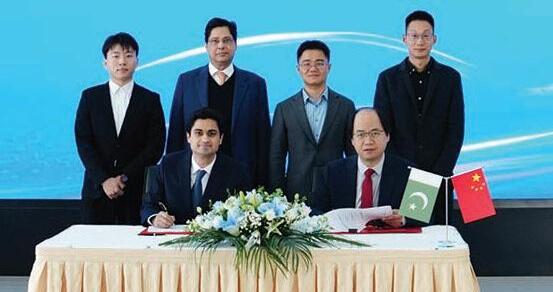
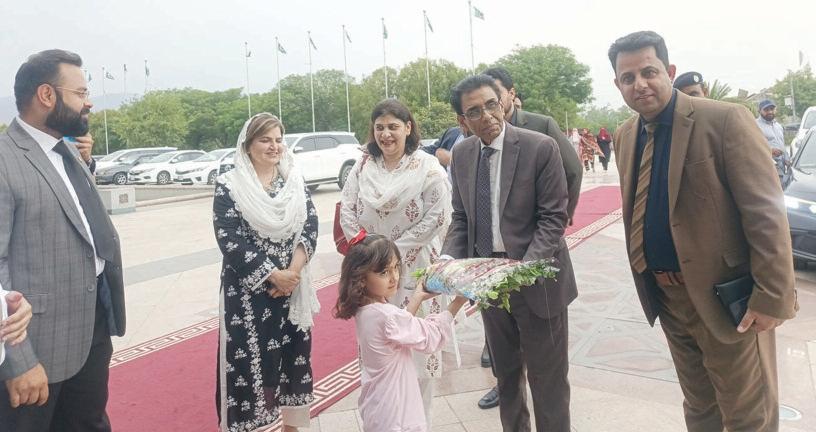



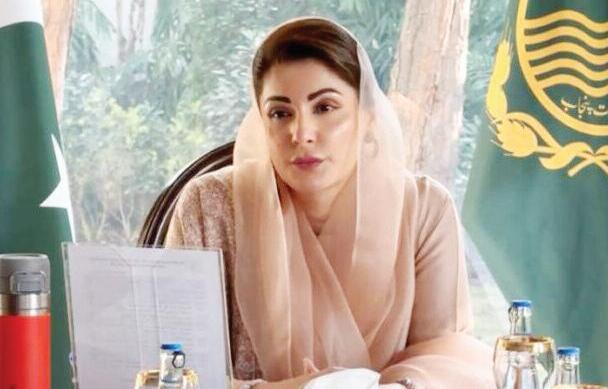
Youm- e -Takbeer: A Symbol of Unity and S trength
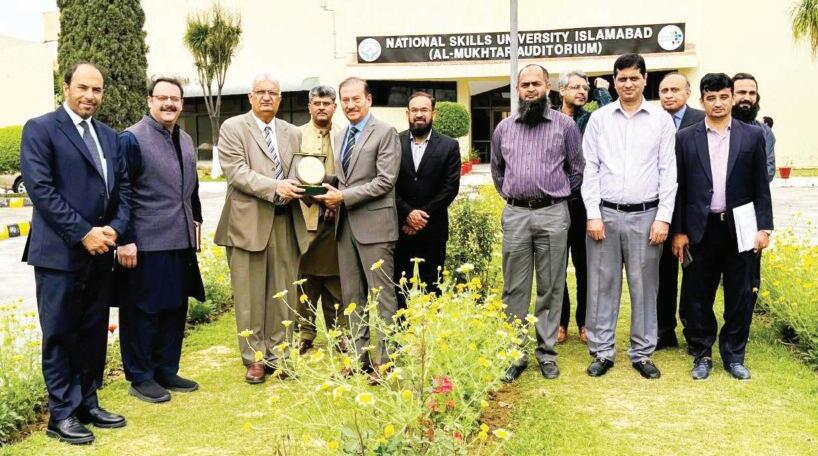
There come moments in the history of nations when a leader must make a bold decision one that prioritizes national sovereignty and security above all else Such decisions etch the leader s name into history ensuring they are remembered and revered for generations *May 28 1998, stands as one such historic day, when Pakistan, under the leadership of Prime Minister Nawaz Sharif, rose with dignity on the world stage and was recognized as a nuclear power This landmark day was aptly named **Youm-e-Takbeer*
India had conducted nuclear tests on *May 11, 1998, in an attempt to dominate the region and assert its superiority However, Prime Minister Nawaz Sharif resisting immense international pressure including a *$5 billion aid offer from the United States* chose to uphold Pakistan s dignity and independence On **May 28, 1998, Pakistan conducted six nuclear tests in **Chaghi effectively neutralizing India’s nuclear posturing and establishing itself as the **first and only nuclear power in the Islamic world*
This bold decision came at a significant cost Nawaz Sharif and his government faced *intense international pressure economic sanctions and isolation Yet the people of Pakistan stood firmly behind their leadership sending a clear message to the world: **Pakistan would never compromise its sovereignty or national integrity*
Now *27 years later that same unwavering resolve has been witnessed again On **May 7 2025
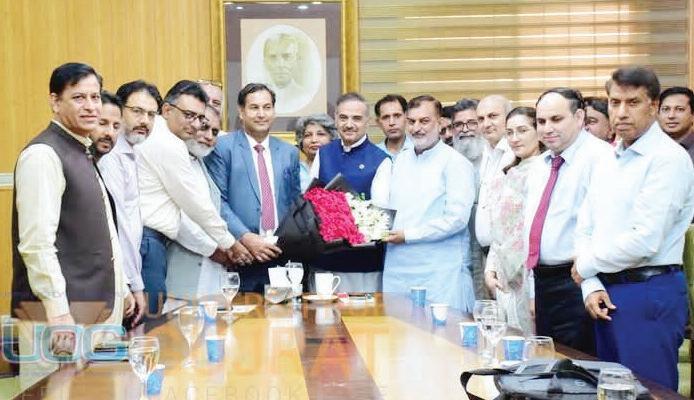
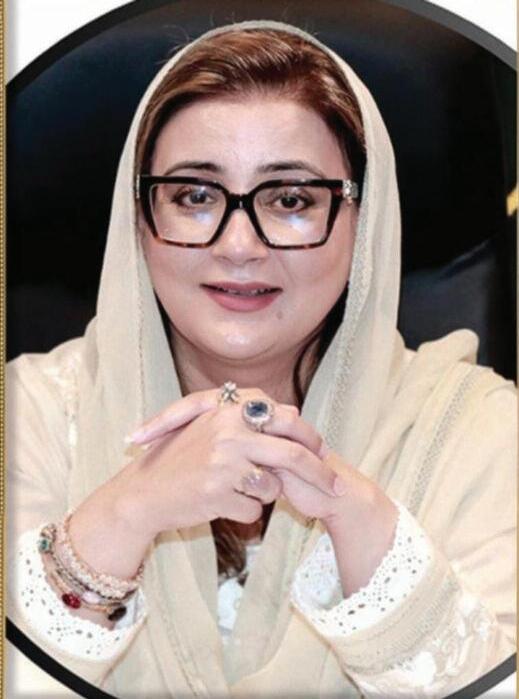
India once again attempted aggression against Pakistan But under the decisive leadership of **Prime Minister Shehbaz Sharif Pakistan responded with full force The nation stood united shoulder to shoulder with its government and armed forces, reinforcing **national resolve* On *May 10, 2025, Pakistan delivered a historic blow to Indian aggression forcing it to retreat The success of this operation **reverberated across the globe The world witnessed the might of Pakistan s **JF-17 Thunder jets, J-10C aircraft, Fatah missiles, and Shaheen ballistic systems International media particularly Western outlets highlighted **India s humiliating defeat* while Indian media reduced to spreading fake propaganda was exposed and forced to retract its fabricated claims
India’s arrogance and military adventurism met a *crushing response Prime Minister Modi and his media allies were left to bear the shame of defeat Pakistan s **cyber warfare capabilities* further disori-
BYD ‘Seals’ Victor y with HBL PSL X’s Player

ented Indian command structures compelling India to back down The *debris of India s much-touted Rafale jets* remains a symbol of their failure, and Modi’s regime has struggled to conceal the losses
By the grace of *Almighty
Allah Pakistan s overwhelming response reaffirmed that **a state founded on the Kalima cannot be subdued by a numerically superior enemy This victory not only strengthened Pakistan’s strategic position but also won the hearts of people across the Muslim world who stood in solidarity chanting * Pakistan Zindabad * in support of the **Pakistan Armed Forces* Our *Air Force* has written another glorious chapter in history one that will be remembered for generations The spirit of *May 28 1998* is alive once again in the unity of the Pakistani nation Today the entire country stands as one in defense of our beloved homeland Prime Minister *Nawaz Sharif* made Pakistan’s defense invincible in *1998 In **2025 his brother Prime Minister **Shehbaz Sharif led the nation to a great victory against a traditional foe **When a nation places its faith in Allah and is led by courageous leaders willing to make bold decisions divine help descends * It is this legacy of *courageous leadership and firm decisions* that has earned Pakistan a distinguished place in the global community Today, Pakistan grows *stronger and more stable, and its people remain confident that the country is in safe and capable hands **Unity remains our greatest strength and together we shall face and defeat every threat We are one We are Pakistan
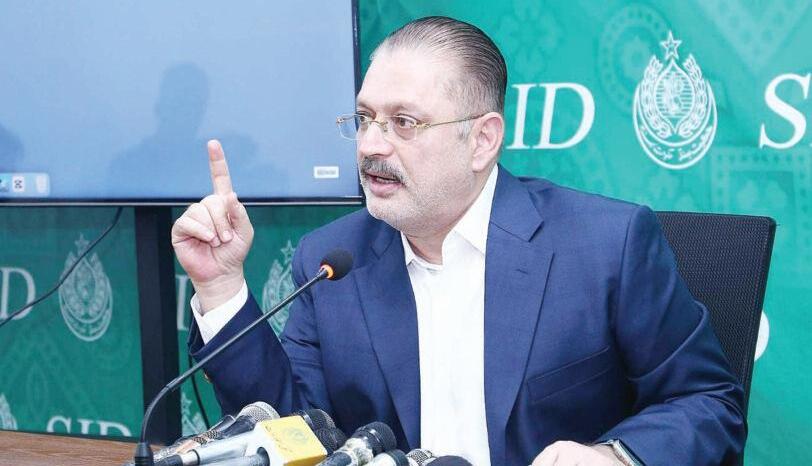
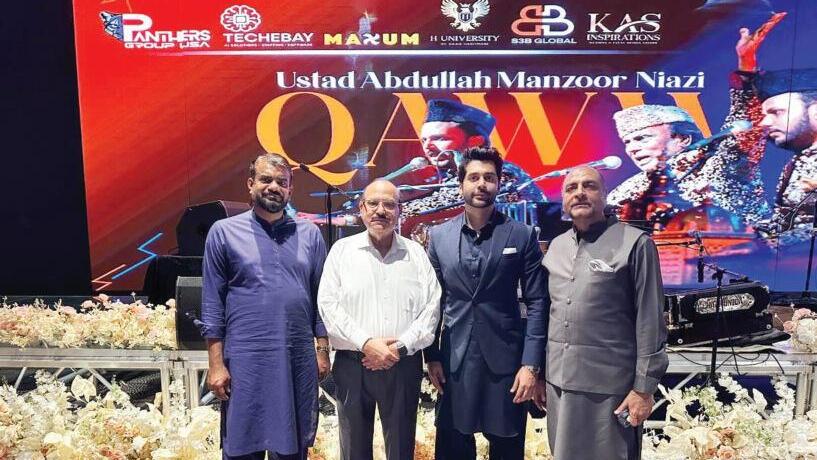

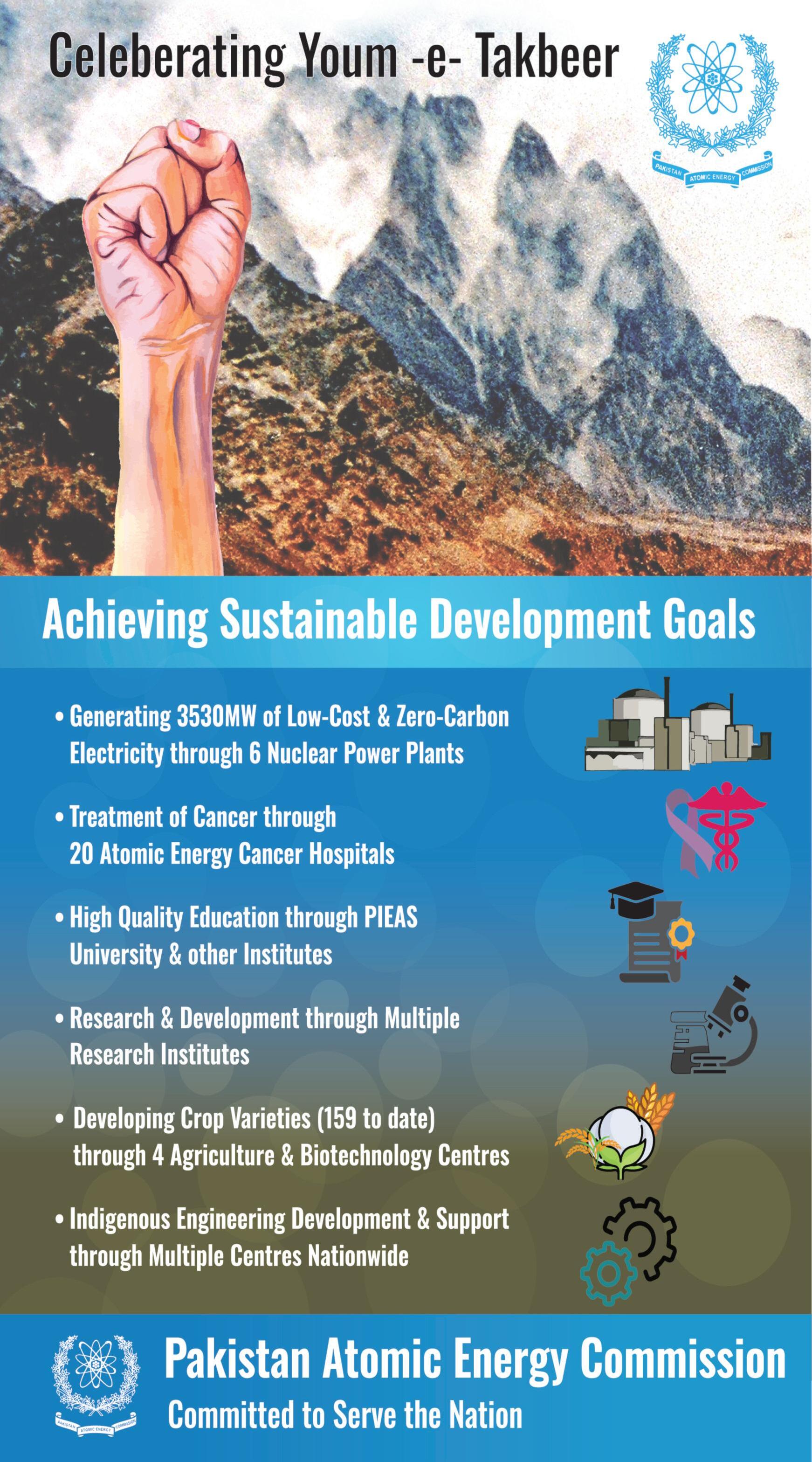

PAKISTAN SHOWCASES MINERAL WEALTH, DEEPENS MINING COOPERATION WITH CHINA UNDER CPEC
